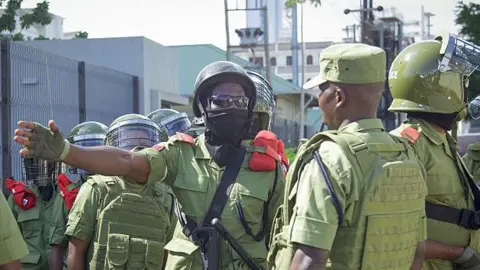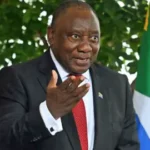In recent weeks, Tanzania has experienced a significant shift in its social media landscape following a series of cyber incidents that targeted the country’s police accounts. Hackers gained unauthorized access to several official police social media profiles, disseminating false information that sparked public confusion and concern. In response, the Tanzanian government has implemented stricter restrictions on the use of social media platforms, citing national security and public order as primary reasons.
The Cyberattack and Spread of Misinformation
Reports indicate that cybercriminals infiltrated police social media accounts—primarily on platforms like Twitter and Facebook—posting misleading messages about security operations, arrests, and government policies. These false updates led to misinformation spreading rapidly among the public, causing panic and undermining trust in law enforcement agencies. The incident highlighted vulnerabilities in the country’s digital security infrastructure and raised questions about the oversight of official online channels.
Government Response and Social Media Restrictions
In the wake of these events, Tanzanian authorities responded by imposing restrictions on social media usage, particularly targeting platforms used to access or share information related to law enforcement activities. The government issued directives requiring social media platforms to suspend or delete accounts that are not officially registered or verified and to cooperate with authorities in monitoring content. Additionally, access to certain sites was temporarily throttled in regions where misinformation was deemed to pose a threat to public order.
Legal Framework and Policy Changes
Tanzania has a history of regulating digital spaces. The Electronic and Postal Communications (Online Content) Regulations, enacted in 2020, empower authorities to monitor and control online content that is deemed harmful or disruptive. The recent restrictions are seen as an extension of these policies, emphasizing the government’s intent to curb the spread of misinformation and protect national security.
Impact on Civil Liberties and Public Discourse
While these measures aim to safeguard public order, they have raised concerns among civil society groups, journalists, and digital rights advocates. Critics argue that such restrictions can be used to stifle dissent and limit freedom of expression. Human rights organizations warn that overly broad or vague restrictions may hinder legitimate journalism and public debate, especially in an era where misinformation can have serious real-world consequences.
The Role of Hackers and Cybersecurity Challenges
The incident also underscores the ongoing cybersecurity challenges faced by Tanzanian institutions. Hackers exploiting vulnerabilities to spread false information not only damage the credibility of official agencies but also highlight the need for robust cybersecurity measures. Experts recommend investing in stronger digital defenses, regular security audits, and staff training to prevent future breaches.
Conclusion
Tanzania’s move to restrict social media after hackers targeted police accounts reflects a complex balancing act between ensuring national security and safeguarding civil liberties. While these measures may help curb misinformation and protect public order in the short term, long-term solutions require comprehensive cybersecurity strategies and transparent policies that respect freedom of expression. As digital spaces continue to evolve, Tanzania’s experience serves as a reminder of the importance of resilient online infrastructure and responsible governance in the digital age.
Email Us on editorial@nnafrica.com













